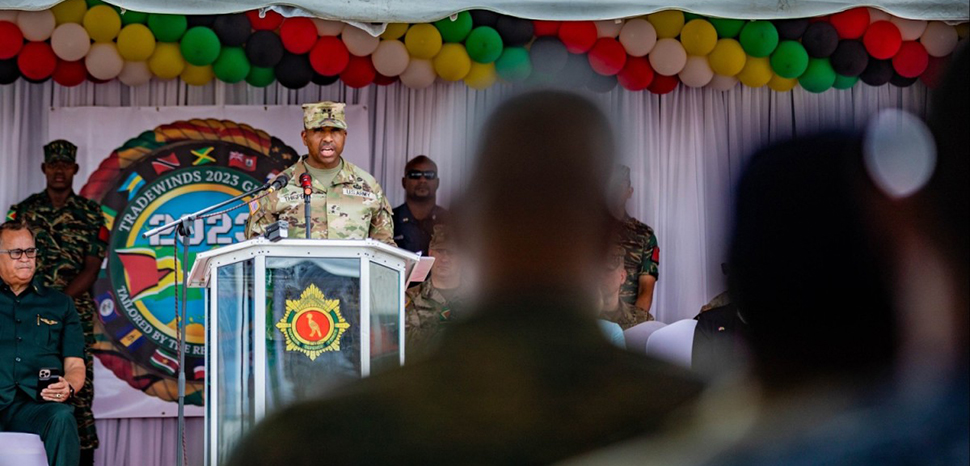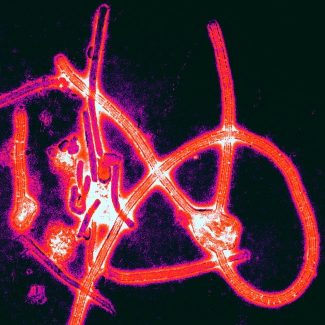In a red-letter day for Guyana earlier last month, for the third time, it took up an elected non-permanent seat on the United Nations Security Council (UNSC), with its latest brush with Venezuela barely in the rearview mirror.
The bigger picture: At a time when the relationship between Guyana and Venezuela reached a nadir—creating a new test for all concerned—that Guyana came out on top in the border spat carried its own message. Of note, ineluctably, in terms of the atmospherics of this juncture in the international relations of Latin America and the Caribbean (LAC), there is a palpable sense that Guyana is primed to be bumped up the “diplomatic hierarchy.”
The grounds for why this is the case are that—owing to other transformational successes, as well—Guyana turned the corner in what historically has been a lopsided, marred relationship with Venezuela. This is the very thing that Caracas feared most as it hatched a scheme that threatened to place off balance the security order in the Caribbean Basin, coming at a geopolitical moment when the stakes could not be any higher, with system effectual wars raging in the Middle East and Europe.
As 2023 drew to a close—having long been in Venezuela’s crosshairs, against the backdrop of Caracas’ long-held claim of the oil-rich Essequibo region—Guyana faced a profound and perilous moment, which brought these two South American countries closer to a new crisis.
Not for the first time, strongman President Nicolás Maduro sought to parlay the Guyana-Venezuela border controversy into a geopolitical bully pulpit, which in itself has the potential to be a prelude to the use of force. Maduro leaned on his “authoritarian gambit,” on the one hand, in a harbinger of Venezuela’s vaunted regional hard power prowess and, on the other hand, in a bid to up the ante regarding his regime’s politicization of the long-running territorial dispute. (Relatedly, with a view to rallying support to remain a political force in-country, the Maduro regime also sought to distract attention from multiple internal/domestic crises.)
With characteristically bellicose, freewheeling public remarks leveled against Guyana—Venezuela’s contiguous eastern neighbor—Caracas assumed a more confrontational posture, contriving a pretext for and a hyping of an ominous annexation-related machination. To put it in context, at the height of this latest clash of wills—pitting an authoritarian-led petrostate (that has lost its luster) against a democratically governed petrostate (that is ascending at an astonishing clip)—Venezuelan hawks routinely militated for escalation. As never before, they were seemingly intent on Venezuela lurching headlong into war. And they seethed at the national unity on display in Guyana, as Caracas ratcheted up its rhetorical attacks, a foreshadowing of Venezuela’s losing hand.
While tone deaf to the international clamor against it, Caracas’ message to Guyana then was clear-cut. And it was a veiled threat to other regional (ostensibly island) states, bearing in mind Venezuela’s unilateral extension of its maritime boundaries some years ago. In this sense, inasmuch as the Guyana-Venezuela border controversy is the single-most important security issue for Georgetown, when framed against differences over Caracas’ maneuvering in respect of Venezuela’s exclusive economic zone, the implications for Guyana’s Caribbean Community (CARICOM) sister SIDS are significant.
Disagreements over the Ukraine war are also pertinent, having regard to CARICOM’s foreign policy standpoint on the same, which is in stark contrast to Venezuela’s backing of Russia’s full-scale invasion of its smaller western neighbor and to the deepening of Russia-Venezuela relations.
Fundamentally, Venezuela flexing its muscles amped up the specter of a Caracas-orchestrated land-grab in respect of a founding member of the CARICOM bloc, whose 14 mostly Anglophone sovereign members once depended heavily on Venezuela’s largess. As polities which only gained political independence in the 20th century, some were recently angling for a reboot of attendant (now defunct) oil diplomacy. Seen in this light, Caracas’ certitude to dominate its surrounding region does not sit well with them.
With heightened tensions between Caracas and Georgetown, whose suspicions qua threat perceptions only grew by the day, the two sides traded diplomatic barbs. But it was not long before other parties also with a stake in the matter got involved; among them, the bloc of CARICOM states. Through the collective effort of all concerned, Maduro was offered (and took up) an offramp from the course of action that he initiated.
Once the dust had settled—further to the investment of political capital by Kingstown, Brasília and others to try to get Caracas to play ball on the so-called Joint Declaration of Argyle for Dialogue and Peace between Guyana and Venezuela—Caracas went from seemingly holding all the cards, when this saga began in September 2023, to being in a diminished position diplomatically at its end.
Sure enough, that accord’s strictures overshadowed the “largely symbolic referendum” on the creation of a new Venezuelan state in the Essequibo region. What is more, even though it was held on December 3rd and voters—albeit, in the context of an apparently low turnout—backed Caracas’ territorial claim, the referendum has not had any legal or practical effect. Rather, and in spite of Caracas’ (toothless) attempt at face-saving, it has been relegated from the news headlines to a footnote in the history of Guyana-Venezuela relations.
This turn of events was not lost on Georgetown, which is wise in the ways of the well-worn Essequibo-related page in Caracas’ foreign policy playbook. Despite its best efforts to deploy that stratagem, Caracas came away grasping at straws in what was a ham-fisted referendum.
Significantly, in the face of the swirl of Caracas’ baseless provocations, held up as a show of strength, Georgetown stuck to its guns on the primacy of the International Court of Justice (ICJ) in the overall scheme of things. A sober-minded Georgetown seized on Caracas’ rhetorical flare-ups to repeatedly bring to the fore the ICJ’s role in furnishing the legitimate, definitive resolution to the border controversy, once and for all.
In hindsight, what is apparent is that Caracas overplayed its hand, with little if anything to show for it. (After such costly misses, it is unsurprising that analysts do not have a favourable outlook for Venezuela’s looming presidential elections.) If anything, as reflected in the aforesaid accord, agreement to establish forthwith a joint commission at ministerial and technical levels in respect of Guyana and Venezuela (to treat with pertinent matters) is a material concession that Georgetown received.
On the question of what has changed since then, that can be summed up in Georgetown having set its sights on a turnabout in the story of Guyana’s foreign policy.
With this in mind, and as is discernible from its foreign policy ether, material capabilities and coercion no longer hold sway over Guyana’s border woes, for a three-pronged set of reasons.
First, if what the fuss is about in international politics is power, a great deal of the latter hangs on a country’s geopolitical stock, which in the case of Guyana has gone through the roof. (There is a resultant tension that arises, insofar as a multitude of interlocking risks also come into play.) More broadly, in such a context, the Guyana-Venezuela border controversy is now salient for great and balancing qua middle powers. (For their part, as previously intimated, small states are also deeply invested in the same.)
Hugely influential is Washington’s staunch support for Guyana’s sovereignty, which is a concept under assault in a liberal international order under severe challenge. So, too, is London’s support, which Georgetown counts on to a considerable degree.
Among the principal actors in this narrative are transnational oil companies. Some—among whom ExxonMobil looms large, as the oil giant that made the record-breaking oil discovery off Guyana’s coast in 2015—are heavily invested in-country. Those stakes are also helpful in making sense of the motivations and actions of some of the states involved, which comprise what ontologically constitute “key actors in international relations.”
With considerable oil deposits, Guyana is now a consequential part of U.S.-cornered capitalist production at the intersection of energy, security and international politics, encompassing interests at the heart of the neoliberal hegemonic project vis-à-vis the international environment. Already, Guyana is at the sharpest phase yet in its quest to join the ranks of leading fossil fuel producers. In a span of just four years as an oil producer, on a per capita basis, the value of Guyana’s oil reserves is among the highest the world over.
The shared interest of the powers set out above, relative to the border matter in question, who have thrown their weight behind Guyana, adds gravitas to the latter and, by extension, cuts away at any misplaced notion of Venezuela exercising authority as a superordinate actor thereof.
Still, with the inviolability of borders being routinely tested by the aforementioned wars, stable balance of power dynamics are under assault.
Second, as it turns out, Georgetown has not quite cast its lot with the West. A case in point: Georgetown backs Beijing.
This in the knowledge that going all-in risks geopolitically constraining how Guyana can position itself in the international environment, amid shifts in the international balance of power.
Hence, while the old, now-familiar status quo between Guyana and Venezuela is steadily eroding, it will not have a bearing on the former’s stance on such Caracas-backers as the People’s Republic of China (PRC), which recently elevated its ties with Venezuela.
Furthermore, it is hard to imagine that Beijing is inattentive to the geopolitical competition over the Essequibo region. That said, while the PRC has expanded its presence in Guyana, including in the petroleum sector, Beijing insists that its involvement in the latter is “not in any disputed area.”
Above all, and as a result, Guyana has at its disposal “a wide range of policy options.”
Third, be it in UN or in Organization of American States (among other) institutional settings, Guyana’s border issue is of greater urgency than at any time in recent history. (Moreover, the little-known border controversy—at least outside of the wider LAC region—has now caught the world’s eye.) It looms large in international organizations’ thinking notably on high politics, lending to what scholars call their “throughput legitimacy.”
The wider context is their interest and stake in standing up for the inviolability of borders, fearful that their historically understood roles as conduits qua catalysts for cooperation and peace may be sacrificed on the altar of international politics-related visioning à la the struggle for power qua realpolitik. This line of thought, which stands opposed to realist explanations, “rests on the belief that institutions are a key means of promoting world peace.”
Beyond this, and as a means to further their respective interests, small states like Guyana are also invested in such organizations. By way of example, with regard to its current tenure at the UNSC, Guyana is advancing a five-fold set of priorities. In terms of Georgetown’s interest in highlighting the nexus between climate change, food insecurity and conflict, it is behind a high-level open debate (set to take place later this month) that is carded as the signature event of Guyana’s presidency of the Security Council.
In sum, all of this suggests that the tide of history is in Georgetown’s favor. The far more important takeaway from this series of developments is that—as borne out by the foregoing analysis—Caracas’ heavy-handed, antagonistic foreign policy-related antics backfired, proving ineffective and counterproductive.
For one thing, and in a diplomatic move that will resonate for years to come, Georgetown upset Caracas’ wider regional strategy. For another, it mostly weathered the onslaught.
Which is not to say that the risk of a Guyana-Venezuela showdown goes away, or, that greater, fast-moving risks to that country’s security are sucked away, too.
Alas, this is the nature of the anarchic international system.
** My thanks go to my daughter, Annmarie, for helping me work through some perspectives in this article.
The views expressed in this article belong to the authors alone and do not necessarily reflect those of Geopoliticalmonitor.com.




